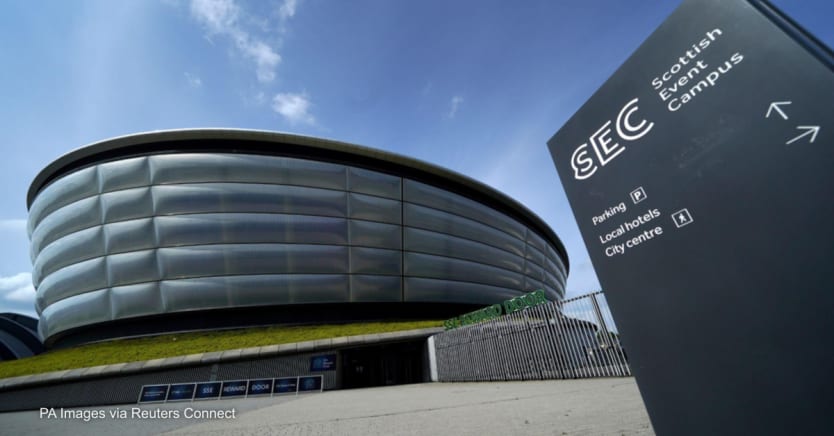
Civil society groups are worried about the size of their delegations to COP 26, according to Catherine Pettengell, director at the Climate Action Network.
The potential for smaller-than-usual civil society representation at the landmark event has sparked concern about how effective and accountable the proceedings will be.
“It’s really important that civil society is there … to hold countries’ feet to the fire, for there to be transparency … [and] showing governments they are being watched.”
— Catherine Pettengell, director, Climate Action NetworkExpensive and complex logistics compounded by COVID-19 restrictions are causing significant organizational challenges for the United Kingdom, which is hosting the 26th U.N. Climate Change Conference in Glasgow this November.
Lower-income countries have complained that vaccine inequity means they could be excluded, and South Africa has publicly threatened to boycott the summit. The U.K. has announced a vaccine scheme for delegates and offered to pay for hotel quarantines for those subject to them.
The logistics concerns are “taking up a lot of people’s time and energy … There genuinely is a concern about whether the civil society presence will be as strong as usual, I think that also potentially impacts on ambition and the voices that are heard in the room,” Pettengell told Devex.
Climate change could internally displace 216M people, World Bank warns
Climate impacts could push 216 million people to migrate within their countries by 2050, the bank says. It urges governments to prepare for millions to do so even in the best-case scenario.
She added: “Many organisations and official UNFCCC constituencies have much fewer badges than normal, as well as facing other barriers to participation as a result of COVID restrictions. We’re obviously concerned about our own representation and inclusiveness and [are] working really, really hard to get people there from countries facing those added barriers to get there.”
Why does it matter?: Experts in civil society groups can provide vital technical and real-world expertise in climate negotiations, helping lower-income and climate-vulnerable nations achieve better deals in talks.
Civil society groups also help provide accountability, according to Pettengell. She said: “It’s really important that civil society is there … to hold countries’ feet to the fire, for there to be transparency… [and] showing governments they are being watched.”
Search for articles
Most Read
- 1
- 2
- 3
- 4
- 5








